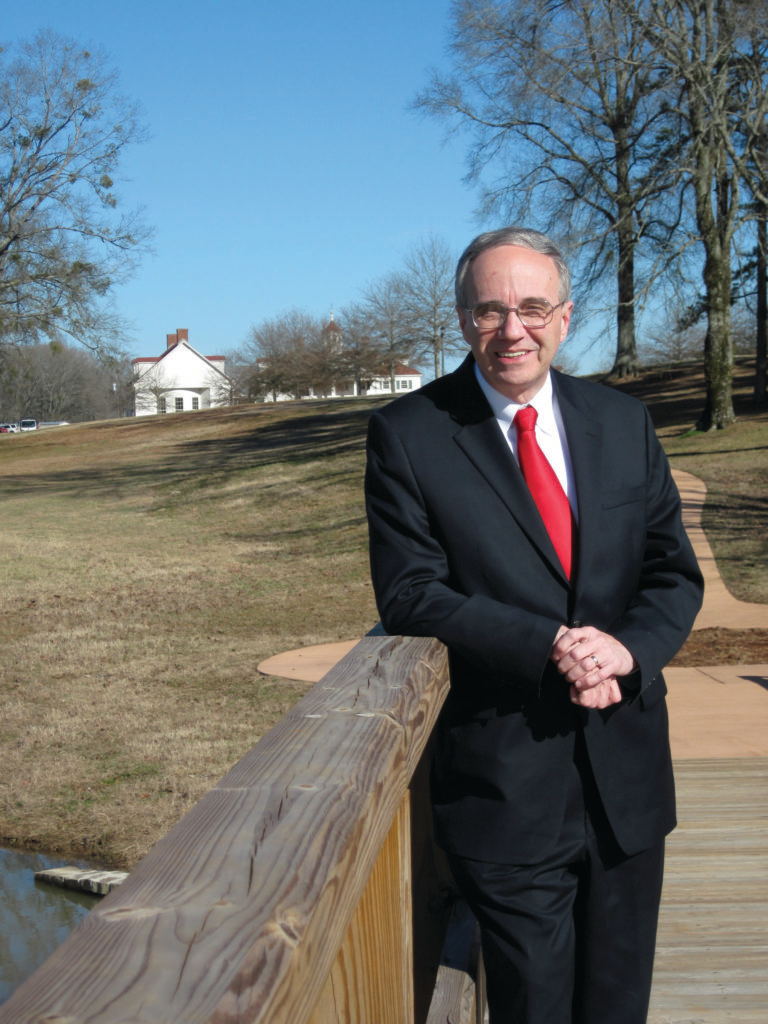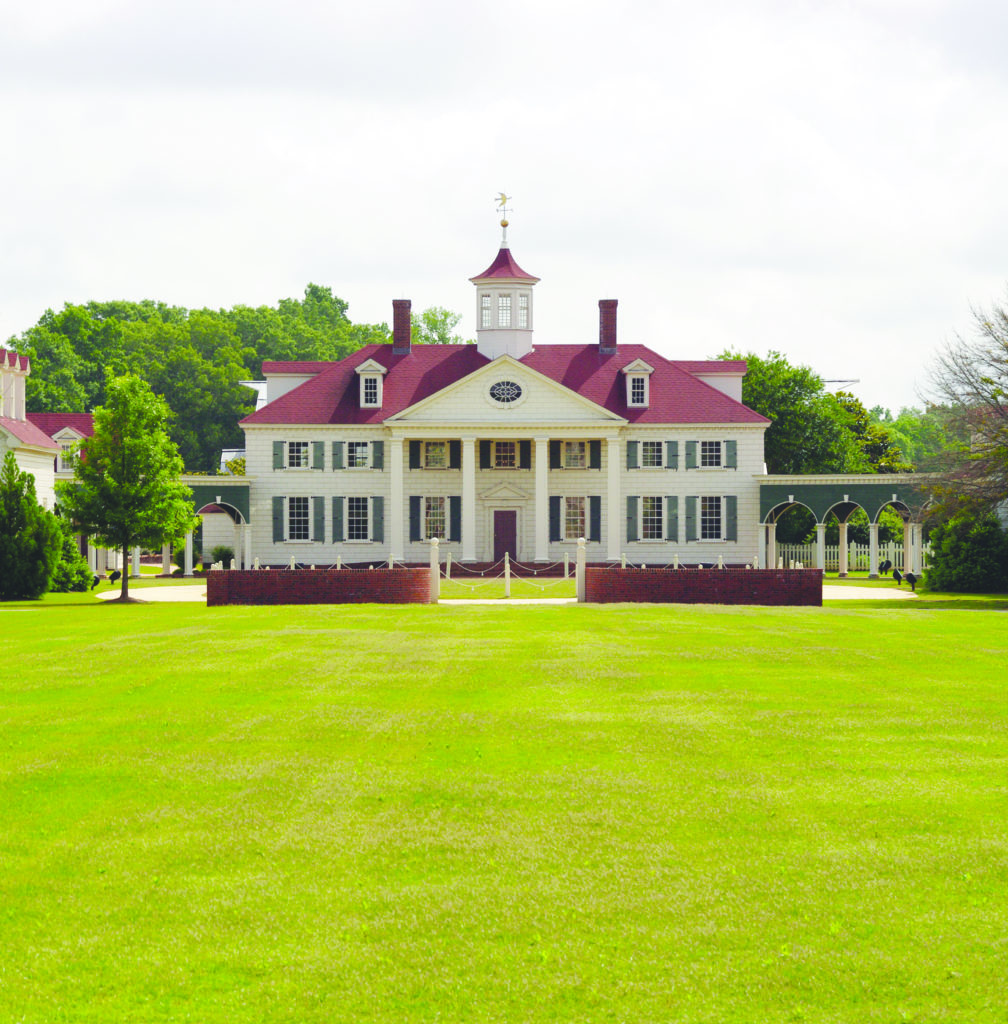
Tom Walker is the founder and president of the American Village Citizenship Trust. He conceived the idea of the American Village, a 188-acre campus of rolling hills just north of Montevallo, as a place to engage young people in the stories of America’s revolutionary beginning as a foundation for their becoming good citizens and leaders. (Although closed for more than a year during the pandemic, the Village is now open through July 30, 10 a.m.-4 p.m. weekdays, and reopens its school season Oct. 1.) In the late 1980s, when studies showed a decline in knowledge of civics and American history, Walker wanted to make a difference. He drew up sketches and concepts for a “unique campus devoted to students having exciting ways to learn more about our nation’s history and the importance of being involved as good citizens.” As he worked to gain support for his vision, speaking publicly to groups and officials, those sketches evolved into what eventually became the American Village, chartered by legislative act in 1995 and opening in November 1999. Today it features more than a dozen historically inspired structures and immerses visitors in the journey to American independence. The American Village is only possible, its Board of Trustees has stated, “because of the extraordinary vision, leadership and perseverance of Tom Walker.” – Lenore Vickrey
Why is it important that young people know our country’s history and heritage?
It’s been said “history is to a people what memory is to an individual.” Or more succinctly, “History is to all of us what memory is to each one of us.” Our memory helps inform the essence of our personal being: things we value, love, and respect; a record of our experiences that have shaped us into who we are. So it is with our country’s history: it informs us of our common and different experiences, and ultimately gives us identity as Americans who share a love of freedom. My dear grandmother suffered from Alzheimer’s disease. Outwardly she appeared the same, but the substance of her being – her identity – succumbed to the relentless march of the disease. I mourned ahead of time because I knew the day would come when she would not know who I was. That day came and I was devastated. But, selfishly, I had overlooked a worse day was ahead of her: the day she would no longer know who SHE was. So we see what loss of memory does for an individual. How worse for a nation to lose its memory: its very identity when it loses connections to the drama, risk-taking, and saga of our country’s history.
What has been your proudest moment in the history of the American Village?
Every day that I see students engaged in learning more about their country – when I see them having fun AND getting into the spirit of the programs by participating as historical figures in many scenes from American history – is a proud moment. I am proud because of the tremendously talented corps of “historical interpreters,” or actors and actresses, who lead students in these vignettes which truly engage young people to be “part of moments” taken from history.
Our 20th anniversary of our school program observed on Washington’s birthday, 2020 – right before the pandemic shut things down – was a time for all who have had a part in this important work to share in that proud moment. The day celebrated the work of literally thousands of people who have made this work possible – and who made it possible for over 750,000 students from the Southeastern states to participate in our programs.
Some of our most moving moments are quiet ones, as we witness veterans or surviving family members saluting the consecrated place at the National Veterans Shrine where sacred ground is enshrined from over 30 international battlegrounds.

What’s ahead for the Village?
This fall we will open the West Wing of Independence Hall which will feature powerfully engaging interactive exhibits recreating scenes in Boston on the night of Paul Revere’s ride. It will be followed by an equally compelling movie about the outbreak of the American Revolution on April 19, 1775, and the decision by colonists to band together for the cause of independence.
Our focus is on securing private funds for finishing the central portion and east wing of Independence Hall. This will have an interactive experience concluding with the signing of the Declaration of Independence, exhibit space, a working Senate chamber for young people, and an interactive classroom focused on the Constitution and Bill of Rights.
One of our goals is to invite more and more citizens to become a part of sharing America’s stories with young people. So we invite anyone to connect with us through our website: americanvillage.org.




